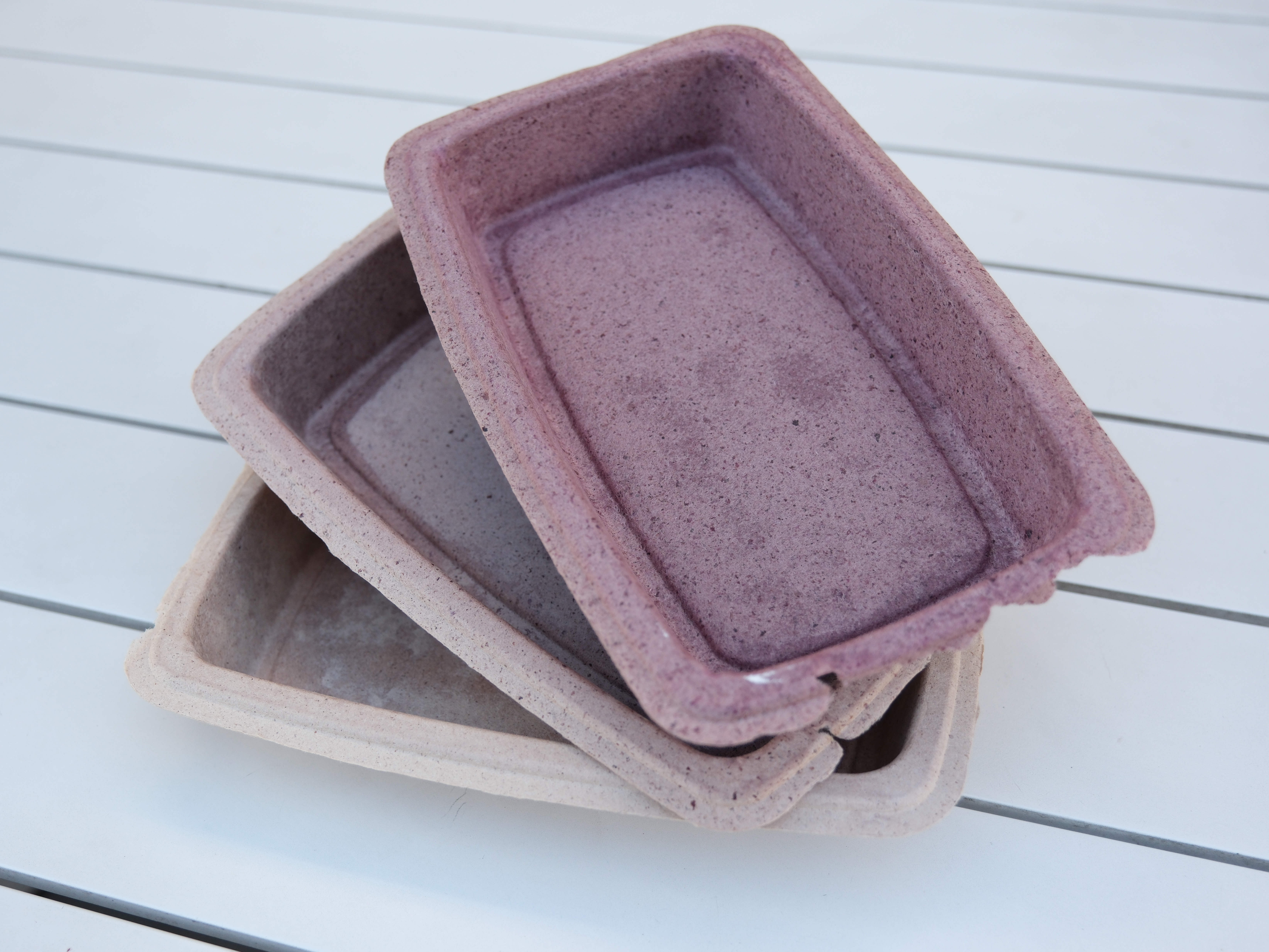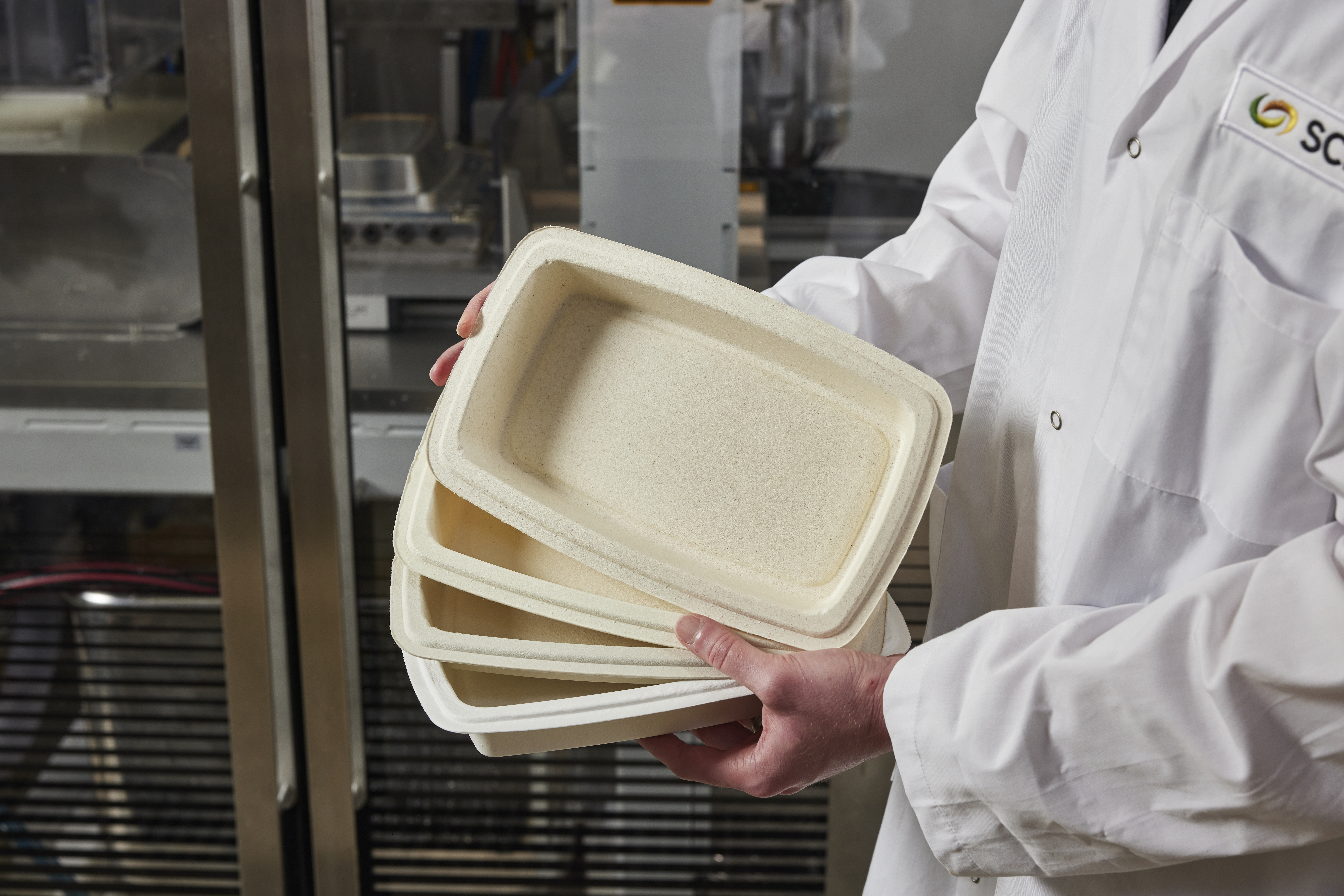Turning blueberry byproducts into sustainable solutions
8 April 2025
A collaboration between Scion and Rotorua’s Mamaku Blue winery could soon see consumers enjoying their blueberries in sustainable trays.
The partnership is developing moulded fibre trays infused with blueberry pomace – turning agricultural waste into a sustainable, compostable alternative to plastic packaging. The work aims to reduce waste while supporting New Zealand’s circular bioeconomy.
With funding from the Bioresource Processing Alliance (BPA) Summer Student Internship, Scion researchers are working with partners to explore whether incorporating agricultural byproducts into moulded fibre trays can enhance their strength and moisture resistance.
These performance factors currently limit fibre-based alternatives to plastic. Kate Parker, Scion’s Team Lead for Sustainable Materials, says the global drive to eliminate single-use plastic packaging has created a need for high-performance, eco-friendly alternatives. “Moulded fibre packaging is a sustainable, compostable option, but it often falls short in strength and moisture resistance compared to plastic. By incorporating agricultural byproducts, we hope to improve the functionality of fibre trays and provide an innovative use for materials that would otherwise end up in landfill.”

This project aligns with Scion’s mission to drive a circular bioeconomy, repurposing organic waste into valuable products and maximising resource efficiency while minimising environmental impact. “The horticulture and agriculture industries generate large volumes of organic waste,” Kate says. “Instead of seeing these byproducts as a problem, we are exploring how they can become part of the solution. By integrating waste streams into new materials, we can help New Zealand move away from plastic and support local producers.”
Michaela Frost, owner of Mamaku Blue, which is known for its high-quality blueberry products, says this collaboration is a step toward a more sustainable future. “Repurposing our blueberry byproduct is a fantastic opportunity for our business and the environment. We repurpose some of our waste for certain products, but not all can be stored indefinitely or processed in time, leading to some disposal. Exploring moulded fibre packaging is an exciting step forward.”

Matthew Parker, a Health Sciences student from the University of Otago and BPA Summer Student Internship, contributed to the work during his 12-week placement. He tested two other agricultural byproducts: avocado stones from oil extraction and cabbage wrapper leaves from farms.
These byproducts were mechanically refined before being blended with wood fibre and made into trays using Scion’s pilot-scale moulded fibre thermoformer – the only one of its kind in New Zealand. Initial results showed blueberry microfibres altered the trays’ appearance, while cabbage microfibres significantly improved water resistance. Future research will explore blending these materials to see if their combined properties offer further benefits.
The moulded fibre trays will be showcased at the inaugural BPA Sustainable Solutions Symposium in Nelson on April 10.
